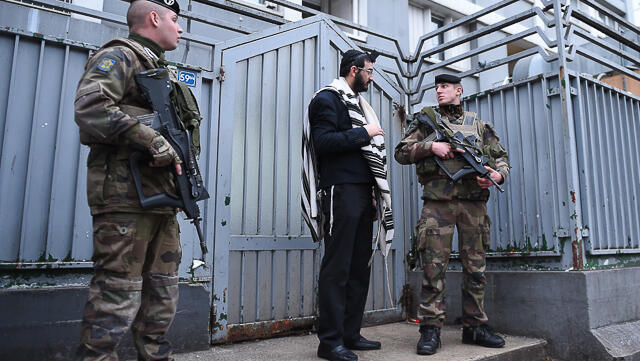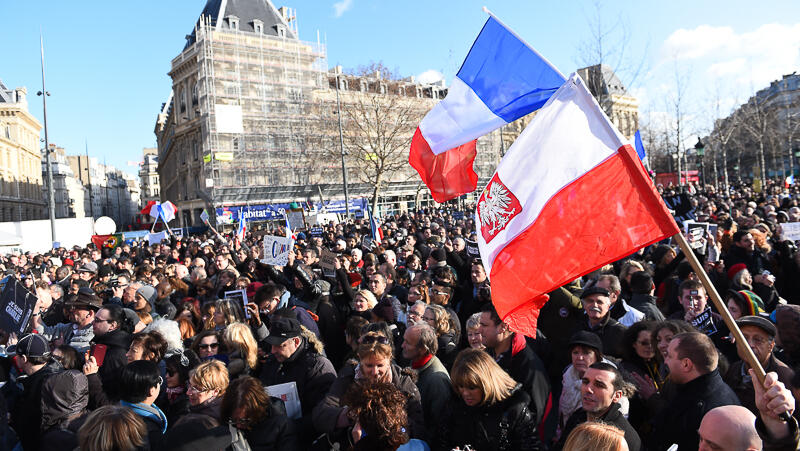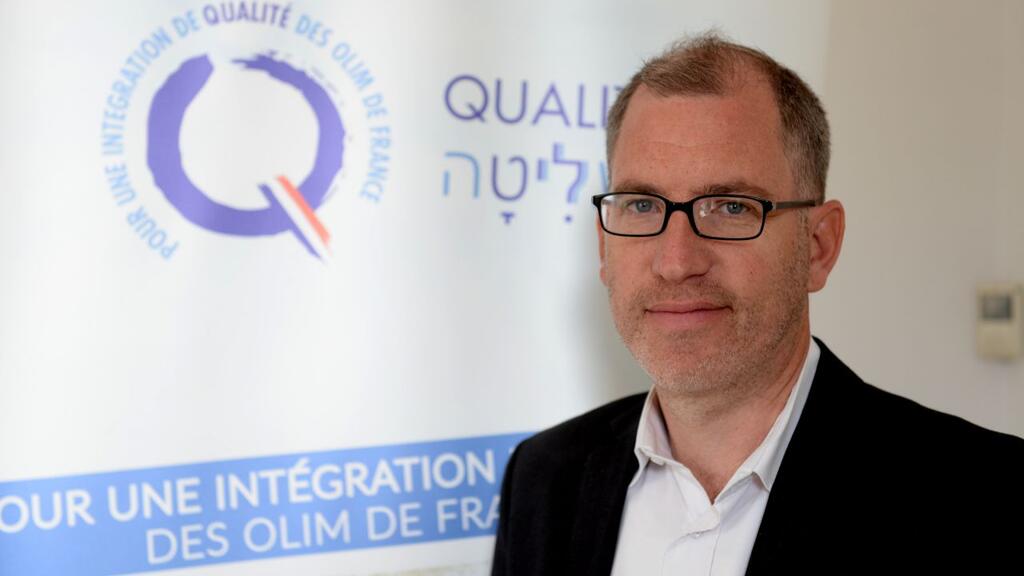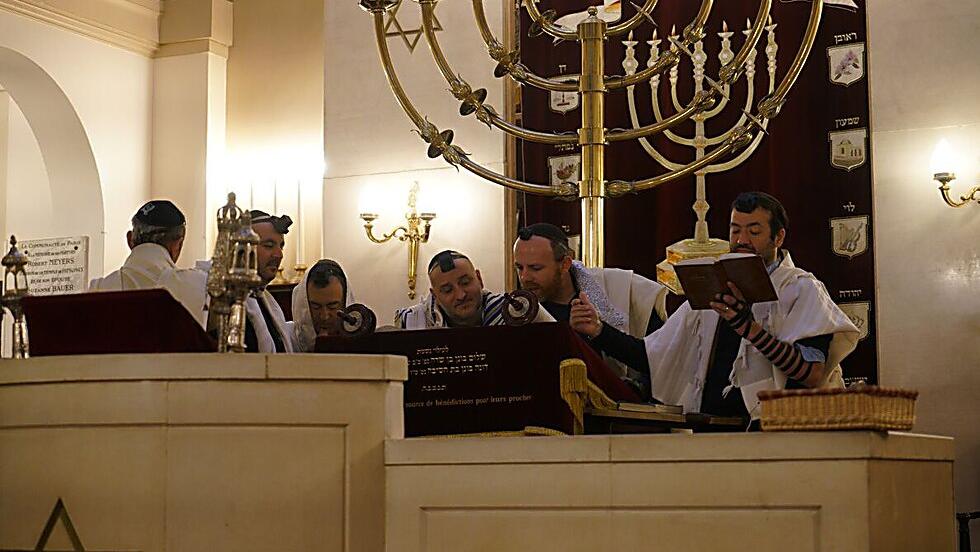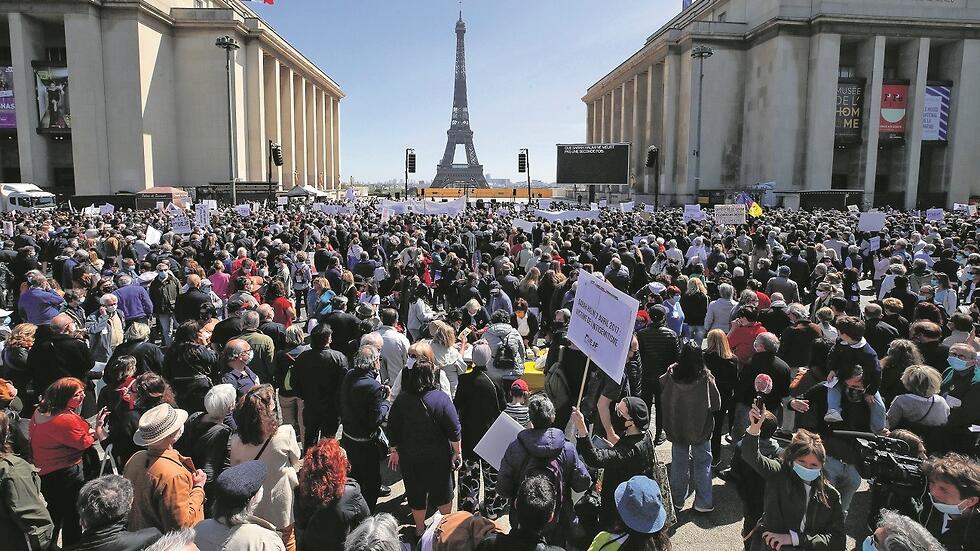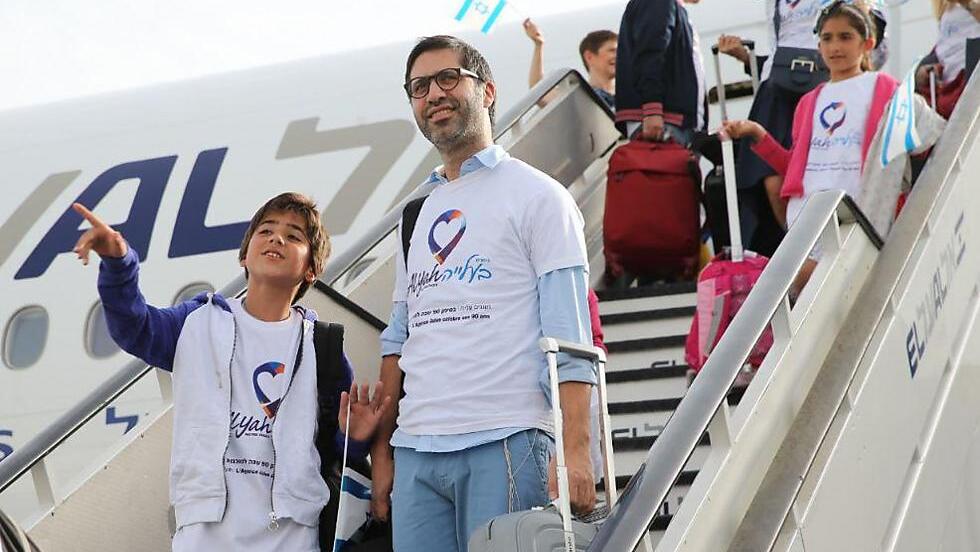Jewish organizations in France, working to help those wishing to make Aliyah to Israel, have been saying for years that the number of people immigrating to the Jewish state has the potential to be much higher than what it is, currently.
They say France has tens of thousands of Jews who are mulling immigrating, but are not doing so out of financial concerns and natural fears associated with moving to another country.
The Jewish community in France is the largest in Europe, numbering nearly 500,000 people, and is considered one of the most influential Jewish communities in the world. Many of its members have relatives in Israel and hold Zionist views, which differentiate from Jewish communities in other countries, which have favored assimilation.
France has undergone internal and global crises in recent decades, which have made it more complex to live in for the Jewish community. Aliyah from France has increased, with nearly 30,000 French Jews now living in Israel and developing French-Jewish communities in the country.
Binyamin Lachkar, who has researched the Jewish community in France, says that assessments on the exact number of Jews living in the country are hard to make, since no official record of their census exists.
“Usually, we categorize the community by three aspects. The first is the part of the Jewish community which is organized and active; the second part is Jews who are not part of an organized community but stay connected with one; and the third category includes Jews who are completely detached from the community or its institutes.”
When asked about what are new trends he has identified in France’s Jewish community in recent years, Lachkar said: “There’s an interesting trend of many Jews becoming more religious and coming together due to antisemitism.”
He added: “On the other hand, Jews are becoming more assimilated in France, though we don't know the exact numbers of Jews who are marrying non-Jews.”
According to Lachkar’s study, the Jewish community in France is made up of three parts. The first is the veteran Jewish community, dubbed the “Israélite,” and it includes Jews from eastern France - mainly of Portuguese Jews who fled to France after the Jewish expulsion from Spain in the 15th century.
The “Israélite” group also consists of Jews from the French region of Provence, mainly from Avignon. According the Lachkar, this sector is nearly extinct, with few members still remaining.
The second part is made of Ashkenazi Jews who immigrated from central and eastern Europe during the second half of the 20th century, with 30,000 Jews joining the community prior to World War I, and 175,000 joining between WWI and World War II.
France’s Jewry was almost entirely Ashkenazi during the Holocaust, some of it with western European roots, and some eastern European. Nearly 80,000 of France’s Jews were murdered during the Holocaust, a big part of them consisting of immigrants who only had arrived in France recently.
The third part arrived in France during the second half of the 20th century: Sephardic Jews who came from North Africa. They arrived during 1950s and 60s, in an immigration wave, which totaled 250,000.
Most of them - 150,000 - arrived from Algeria, which France conquered during the 19th century. About 100,000 more Jews came to France from Tunis and Morocco.
Lachkar says that French Jewish elites are well established in the country, and will likely never immigrate to Israel. “The prefer to keep their status in France rather than start from scratch in Israel. They have a lot to lose. There’s few examples, like singer Gilbert Montagné, or film director Élie Chouraqui, who made Aliyah, but most don’t immigrate.”
Members of the veteran Jewish community or the “Israélite,” make up the majority of those who make Aliyah. By leaving France, they leave gaps when it comes to pro-Jewish activism in the country that are hard to fill.
Ariel Kendel, head of the Qualita organization that aims to help Jews wishing to make Aaliyah, says that immigration from France affects the Jewish community there. “There’s no doubt it has an effect. When 50,000 out of 500,000 leave - that’s fine. But, when 50,000 turns to 200,000, that’s something else entirely,” he says.
“The Jewish community in France is trying to find a solution to this problem. When people who are active in the community leave, they attempt to fill the space by bringing Jews who are still involved with the community closer to Judaism. The aim is to fill the gaps, but also to bring the community closer together and prevent assimilation.”
One of the initiatives was to encourage Jews living is smaller communities to move and join the larger ones in order to empower one another. Efforts are also being done to bring Jewish people closer to their heritage via projects like “Taglit-Birhtright,” and others.
According to Kendel, “most leaders in the community say immigration is a personal choice, and it’s not up to them to encourage or discourage it, but most of them have family in Israel and many of their children immigrated.”
According to Kendel, Israelis do not really understand what it is like to experience antisemitism firsthand, or be subject to anti-Israel attacks in the public sphere.
“When an Israeli Jew hears about antisemitism, he doesn’t really understand it. It isn’t like a terror attack on the street, it’s something that puts a major psychological pressure on the whole community. It's the realization that you can be cursed, beaten or stared at at any moment.
“There are also more severe cases - a Jew is murdered in France every six months. The government says these cases aren’t antisemitic in nature, and labels it as simply ‘murder’, but everyone can see the bigger picture.”
When asked why more Jews are not moving away from France in the wake of such incidents, Kendel said: “Mainly due to financial reasons. France is a welfare state, and it provides considerable welfare benefits, people with lower income don’t know how they’ll manage once they arrive in Israel.
“You don’t need to give them a free apartment But if there was an organized plan for employment, assistance with local authorities and a potential support with rent costs, it would be easier for them to make the decision. France is among the few places where almost every Jew you ask would say he wishes to immigrate to Israel right away.”
“You don’t need to give them a free apartment. But, if there was an organized plan to offer employment, assistance and a potential support with rent costs, it would be easier for them to make the decision. France is among the few places where almost every Jew you ask would say he wishes to immigrate to Israel right away.”
Another element making immigration more difficult is the exchange rate between currencies. Ten years ago, one Euro was worth six shekels. Today it is worth half that. This effects new Olim's purchasing power - making it more difficult to live in Israel.
Some French Jews also opt to immigrate to other countries, and not to Israel. Exact numbers are difficult to ascertain, French Jews are said to favor England, the United States and Canada.
When asked how many Jewish immigrants from France arrived in Israel in 2022, Kendel replied: "About 3,000, which is a slight decrease in numbers, but still high overall. Before the recent immigration wave, we saw up to 1,000 French Jews arriving per year.”
He added: “This means we created a new annual standard, but one which still doesn’t live up to the potential. With an organized plan and largescale immigration incentives, we could’ve reached a number which is more than double what it is now.”



